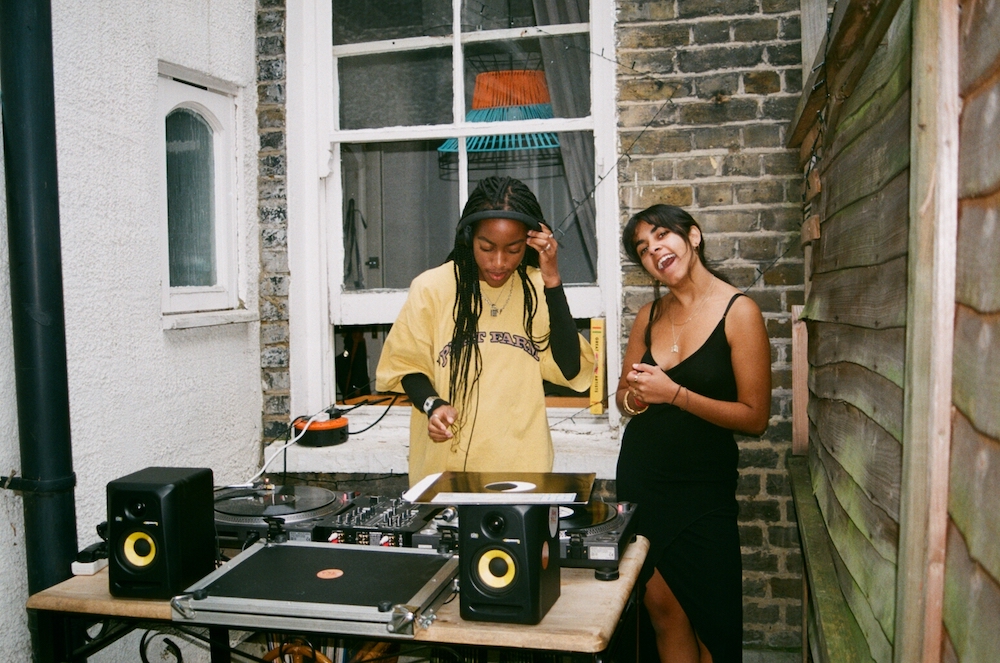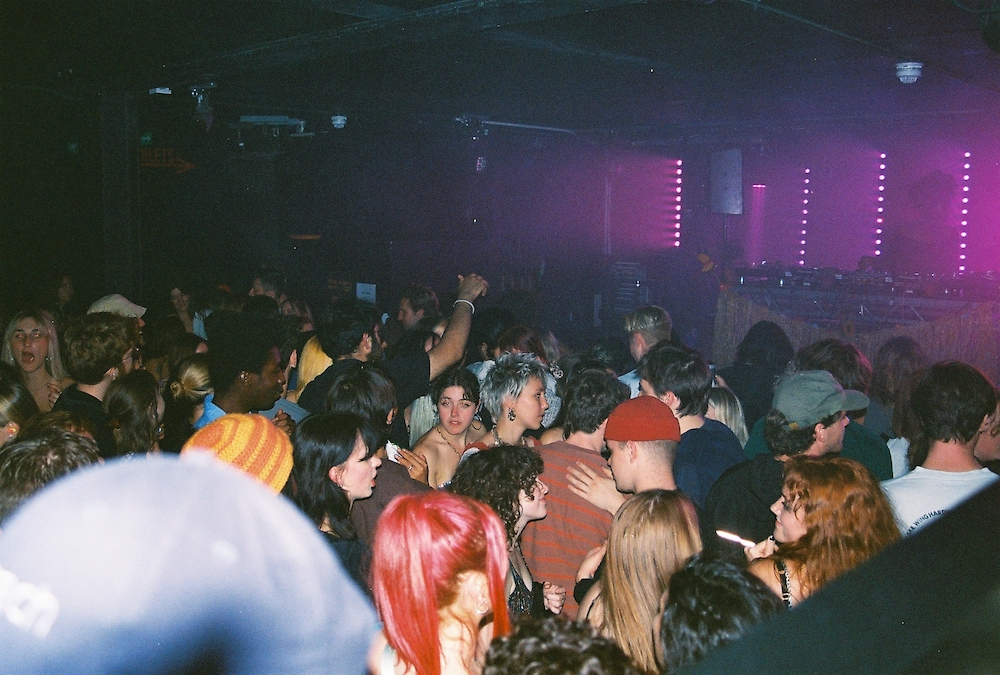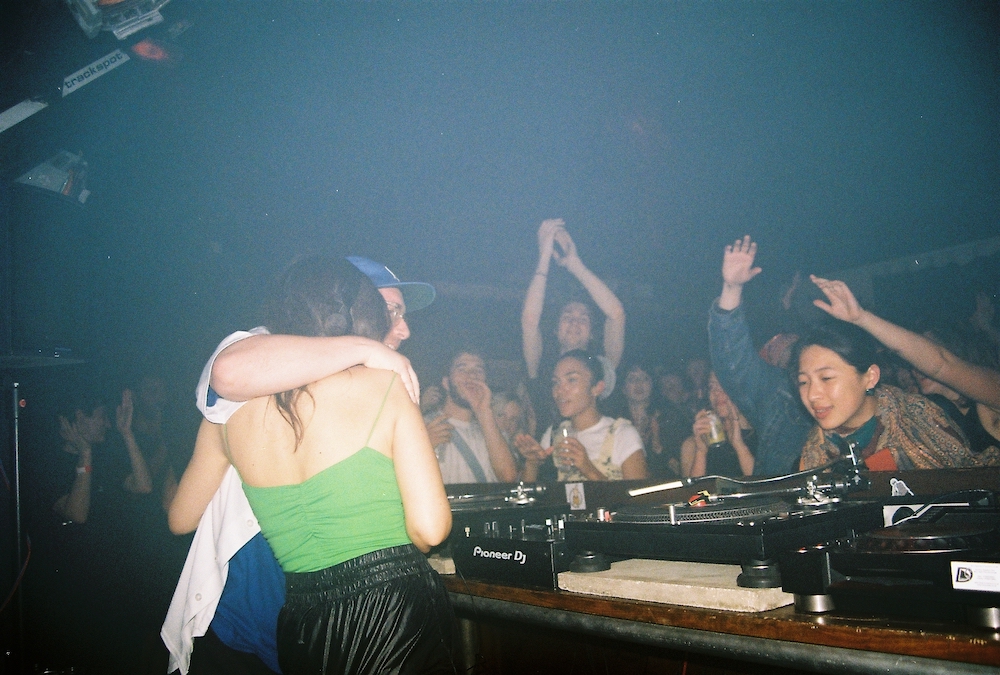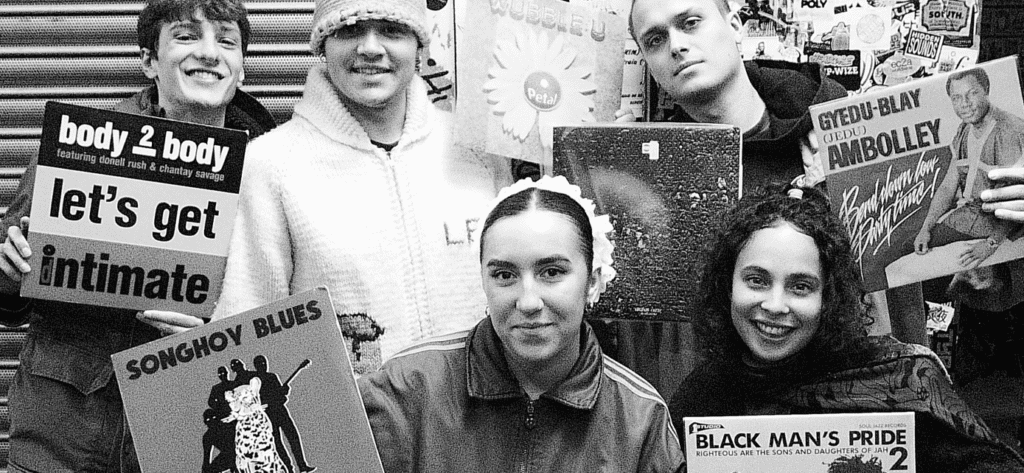Published on
January 29, 2024
Category
Features
We catch up with the London-based collective Social Records Society to discuss their parties, running an open decks and the joy of bringing people together.
For the last five years, a group of young DJs have been coming together to party and share records with their community in the heart of London.
The collective, made up of Ri Mistry, Vandorta, Rohan Rakhit, Jaime Rosso, Disco Fucks, Sophie Farrell and Bror Havnes, is called Social Records Society and is guided by one principle–to get people dancing.
Beginning in 2018 as a university society, Social Records Society was founded by Sophie Farrell before its residents grew. “Gradually, as it went on, we built a little community around it. It was free entry, 10 minutes walk from Goldsmiths on a Wednesday night,” Farrell explains.
As time went on and Farrell and the other members eventually left Goldsmiths, the group became independent of its university origins, blossoming into its current form. “It started just at Sister Midnight Records, which is a small basement. It was only 50 people you could fit in there,” Rosso says.
From there, Social Records’ reach has grown, sizing up to spots across Deptford and beyond, including Cafe 1001 and Corsica Studios. “It’s just great seeing all your friends coming to the party that you’re a part of”.
When chatting with the members of Social Records, there’s a refreshing openness in their intentions. In a period where audiophile events are on the rise, Social Records isn’t looking to create an exclusive space limited to experts on high-end audio. Their primary motivation for working with vinyl is based on the ability to share.
“There’s something about the physicality of records that is way more about like sharing this thing that you’ve searched for,” Van Dort says. “It’s really nice in a collaborative context.”


That sense of inclusivity and openness extends to Social Records’ bookings. With line-ups largely dominated by the group’s wider community, rather than flashy headliners, Social Records feels like a family operation. The family is open to outsiders, however, thanks to the organisation’s Open Decks events. Running primarily at Peckham’s Four Quarters, the Open Decks is a chance for no-pressure vinyl DJing–a valuable resource considering the large entry cost of turntables and mixers.


As is important for any initiative used to cultivate new and inexperienced DJs, Social Records tries its best to ensure representation among its Open Decks performers. “We do try and make it as balanced or as fair as possible,” Rosso says. “We make sure everyone can ask any questions that they need to–beginner or not”.
Part of that process involves outreach to potential DJs who might have hesitation. “There’s a lot of encouraging of people from outside of Social Records. People who are like ‘I’ve got some vinyl, I’ve never really tried it before’. It’s part of the community thing, you can be part of a big crew who aren’t gonna laugh at you”.


The future is bright for Social Records Society with a series of parties in the works. For its core members, the goal is to keep bringing quality selections to audiences pulled together by their mutual love for vinyl and music.
“It’s rare that there are spaces in London now that just foster everyone coming together. With Social Records, I can go to these parties and see people together that would otherwise be across a whole range of other parties,” Rakhit explains. “We’re fostering friendships and community.”
Find Social Records Society on Instagram.
Read more: The London collective providing a home for female reggae DJs
